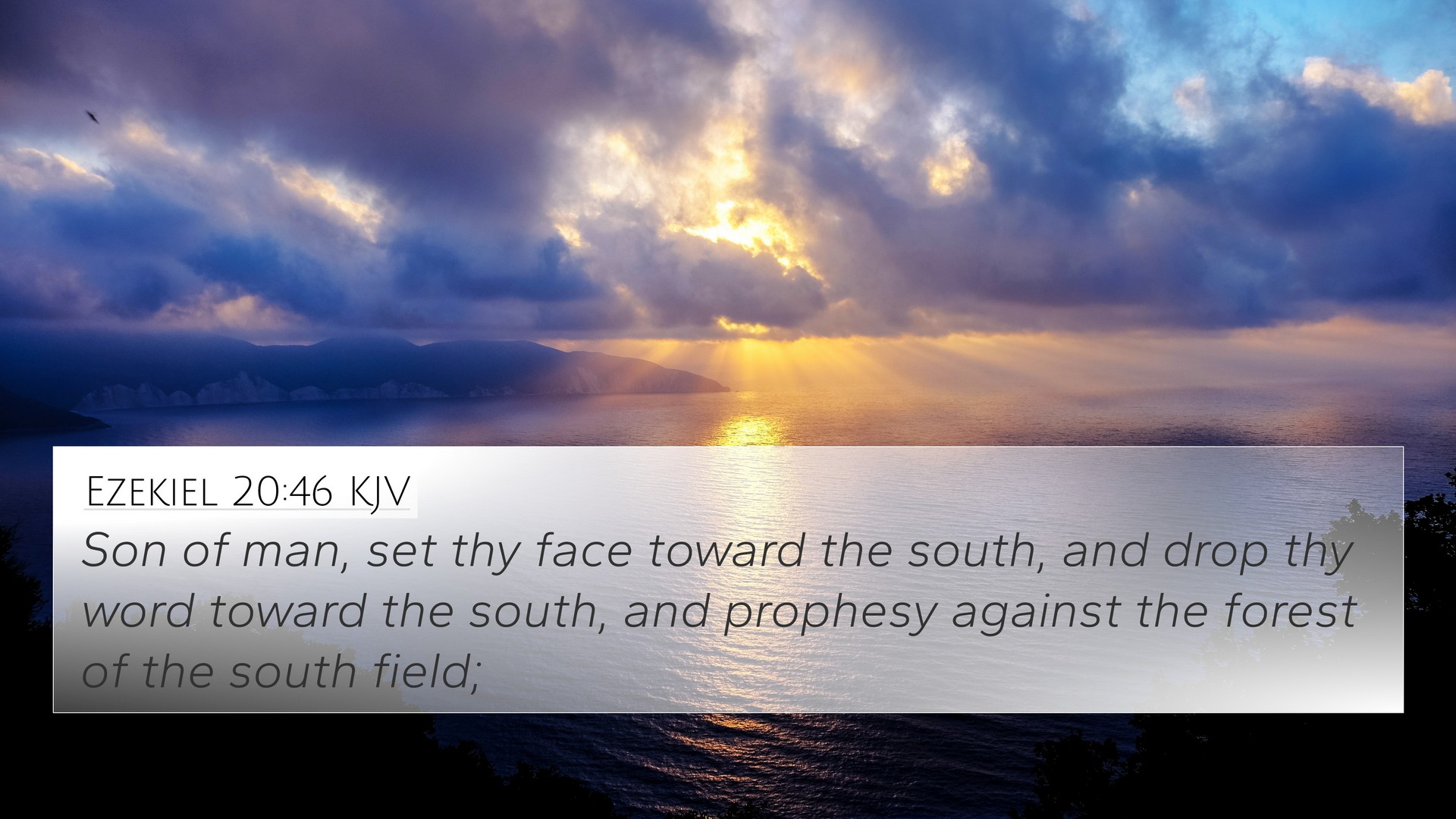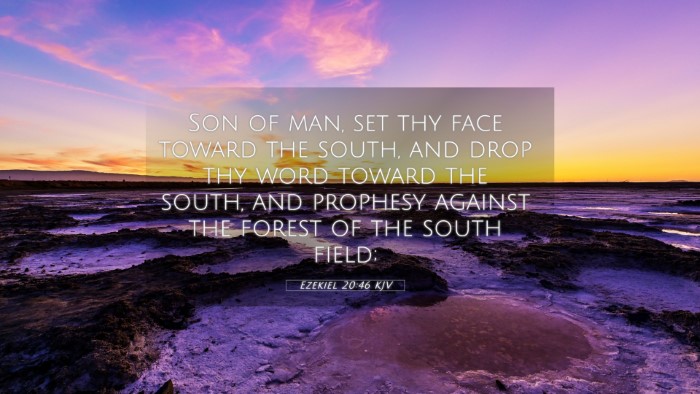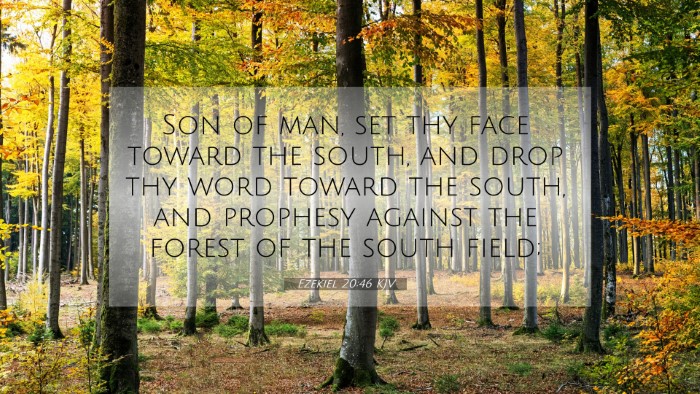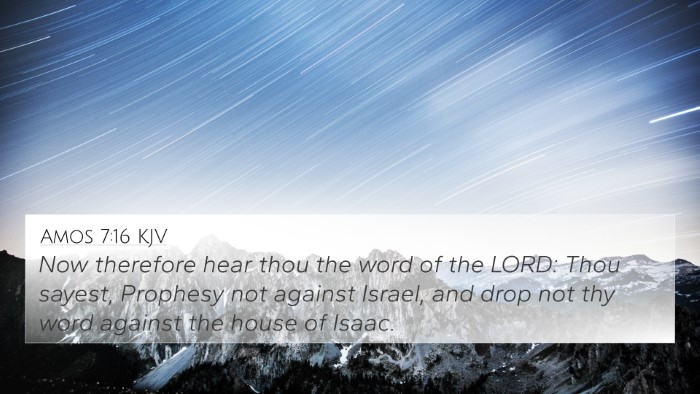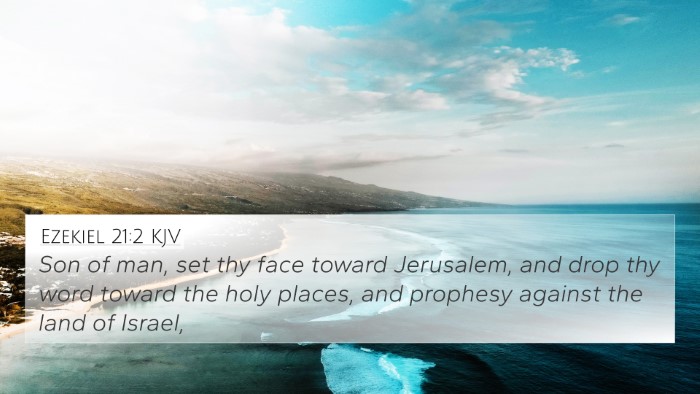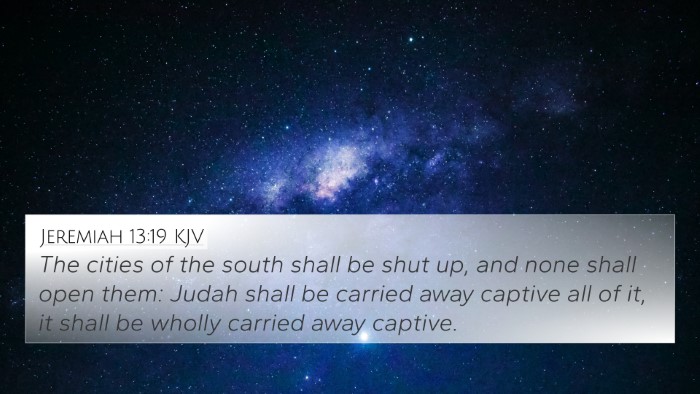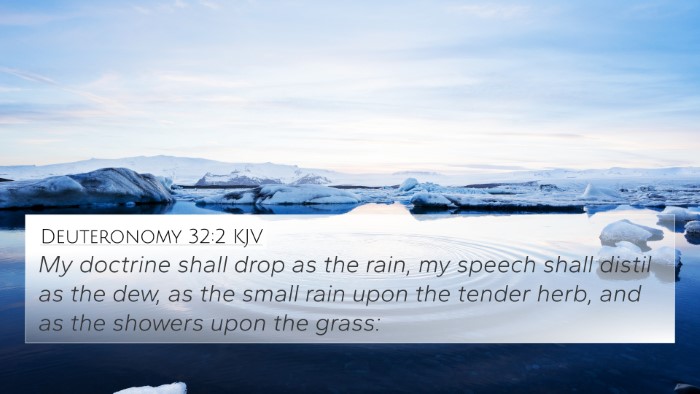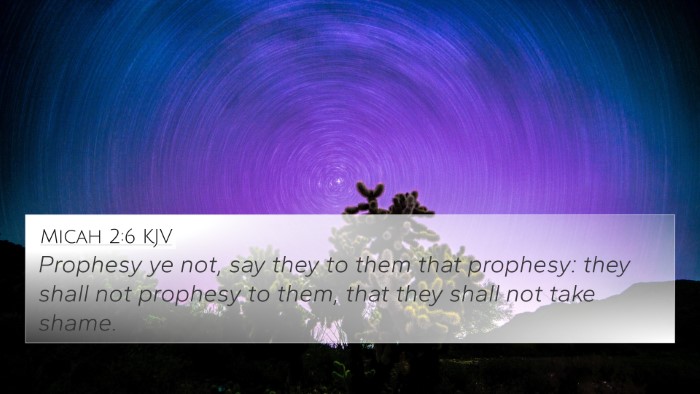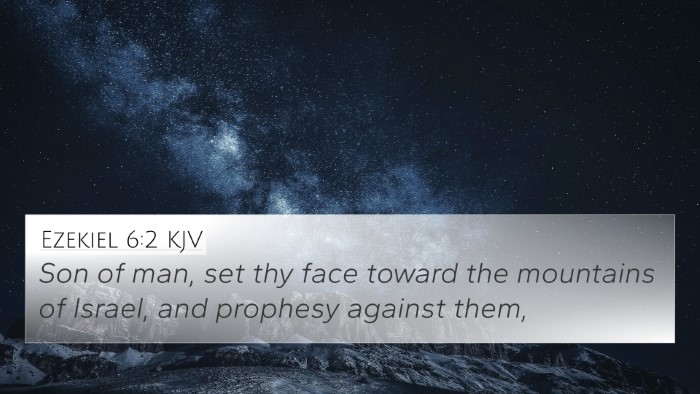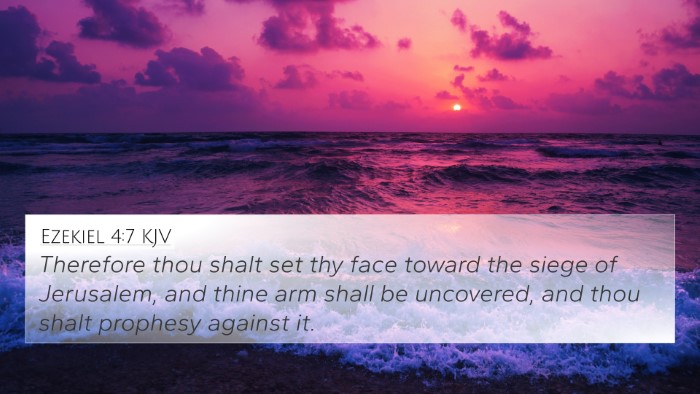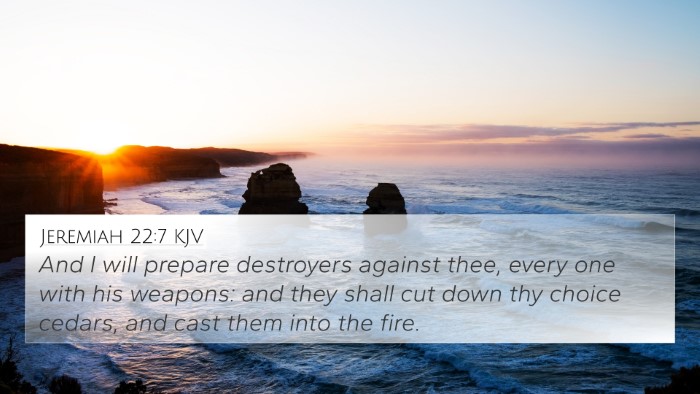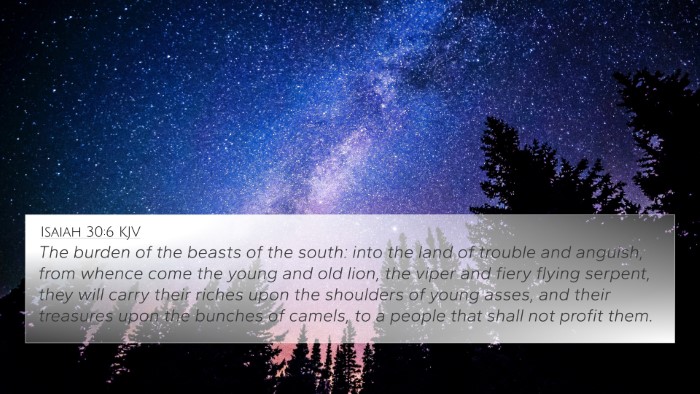Ezekiel 20:46 – Understanding the Call to Judgment
Ezekiel 20:46 states: "Son of man, set thy face toward the south, and drop thy word toward the south, and prophesy against the forest of the south field." This verse highlights God's command to Ezekiel to prophesy against the southern region of Judah, symbolizing the impending judgment due to the people's rebellion and disobedience.
Summarized Insights from Public Domain Commentaries
The insights drawn from the commentaries offer a rich understanding of this verse:
-
Matthew Henry:
Henry emphasizes the symbolism of Ezekiel being directed to the south, representing the southern kingdom of Judah, which was filled with idolatrous practices. The "forest of the south field" likely symbolizes the people who are vast in number but bear no fruit because they are not following God's commands.
-
Albert Barnes:
Barnes elaborates on the metaphor of the "forest," indicating the corrupt leaders and the populace of Judah who had turned away from God. The prophecy serves as a warning of their coming downfall if they continue in their sinful ways.
-
Adam Clarke:
Clarke discusses the prophetic ministry of Ezekiel as a necessary act of faithfulness, echoing the urgency of delivering God's message to a wayward nation. He notes how this call further cements Ezekiel's role as a watchman for Israel, tasked with warning the people.
Thematic Significance
The thematic importance of Ezekiel 20:46 demonstrates God's patience and desire for repentance. The prophet's directive to speak against the forest symbolizes the broader call to accountability and the necessity of confronting sin, a frequent theme in the prophetic literature.
Connections Between Bible Verses
This verse connects significantly with other scripture passages, emphasizing similar themes of judgment, repentance, and the call for prophetic voices in the land. Below are selected Bible cross-references that deepen our understanding of this message:
- Isaiah 10:18 - The destruction of the glory of the forest, symbolizing judgment.
- Jeremiah 2:17 - Addressing the disobedience of God's people.
- Ezekiel 3:17 - The watchman concept, reinforcing Ezekiel's responsibility to warn.
- Amos 3:7 - God reveals His plans to His prophets.
- Matthew 3:10 - The call for repentance, linking the Old and New Testament themes.
- Romans 11:22 - The severity and kindness of God reflected in judgments.
- Revelation 18:2 - The fall of Babylon as a representation of divine judgment on unfaithfulness.
Scriptural Cross-Referencing
Engaging in scriptural cross-referencing helps illuminate the greater narrative woven throughout the Bible. By understanding Ezekiel's call against the 'forest of the south,' we can see how God continually addresses His people's sinfulness, calling for accountability across both testaments.
Inter-Biblical Dialogue
The inter-Biblical dialogue presents a framework for connecting prophetic warnings in the Old Testament with teachings in the New Testament. Emphasizing penitential themes, profound moral failures, and divine expectations makes this verse a poignant reminder of God’s unyielding call for holiness.
Conclusion
Ezekiel 20:46 stands as a crucial directive for understanding God's judgment and the compelling role of the prophet in communicating divine messages. By studying cross-references and exploring thematic connections, readers gain a richer appreciation of how God communicates with His people, urging them toward repentance and faithfulness.
How to Use Bible Cross-References
For those seeking to delve deeper into the connections between biblical texts, utilizing tools for Bible cross-referencing can enhance personal study and sermon preparation. Understanding how to identify connections between Old and New Testament passages can yield profound insights into the continuous dialogue between God's will and humanity's response.
